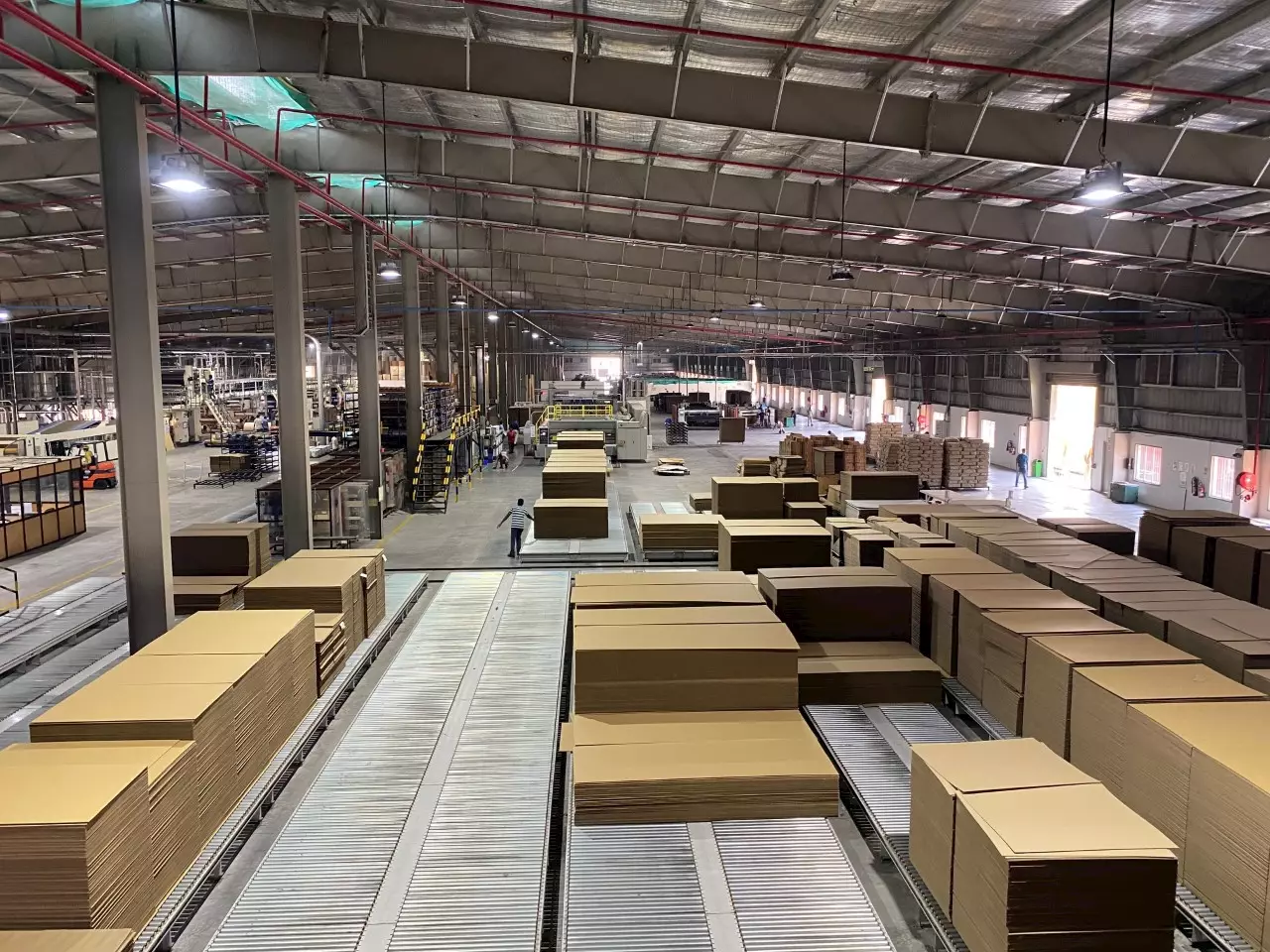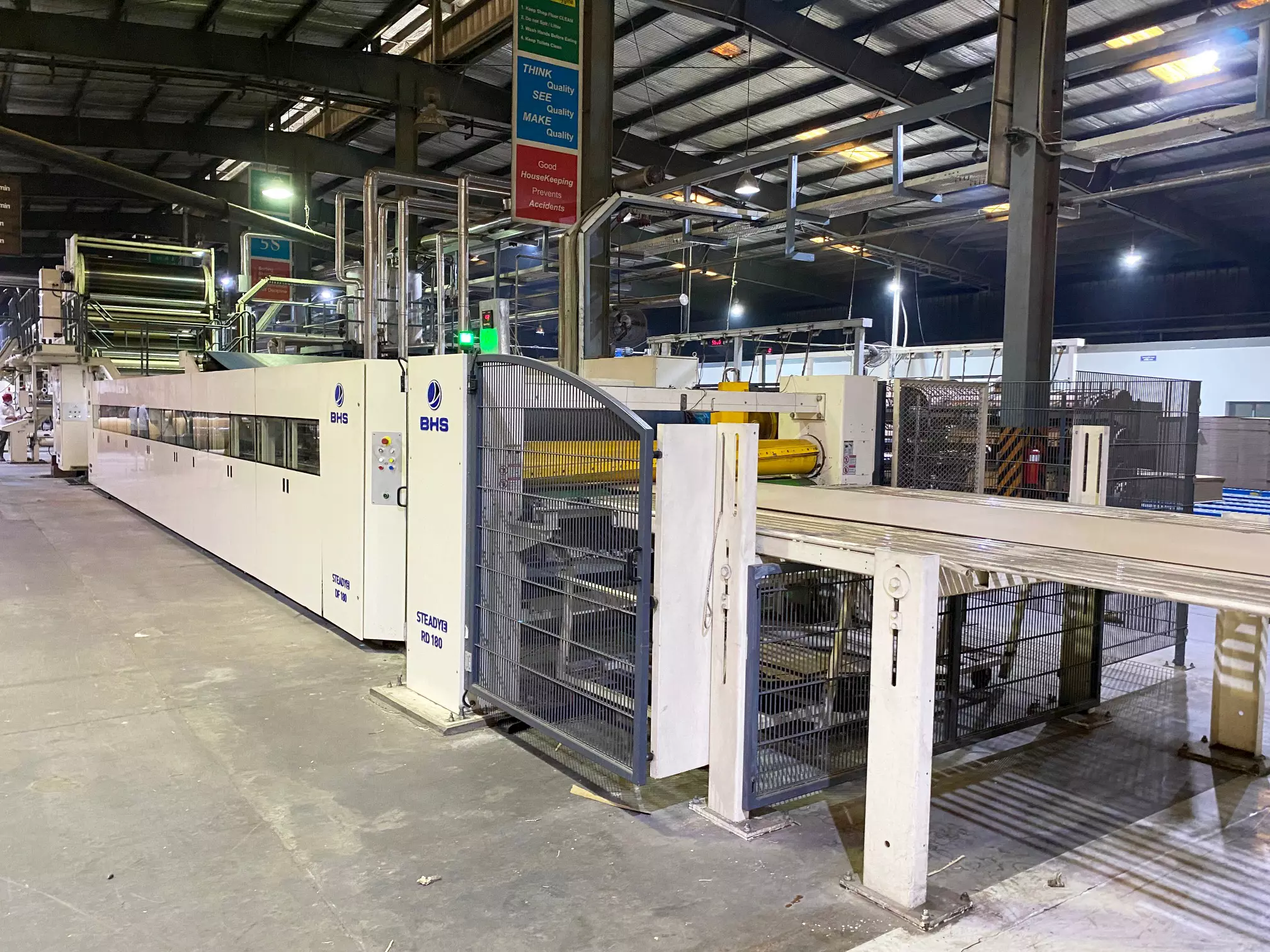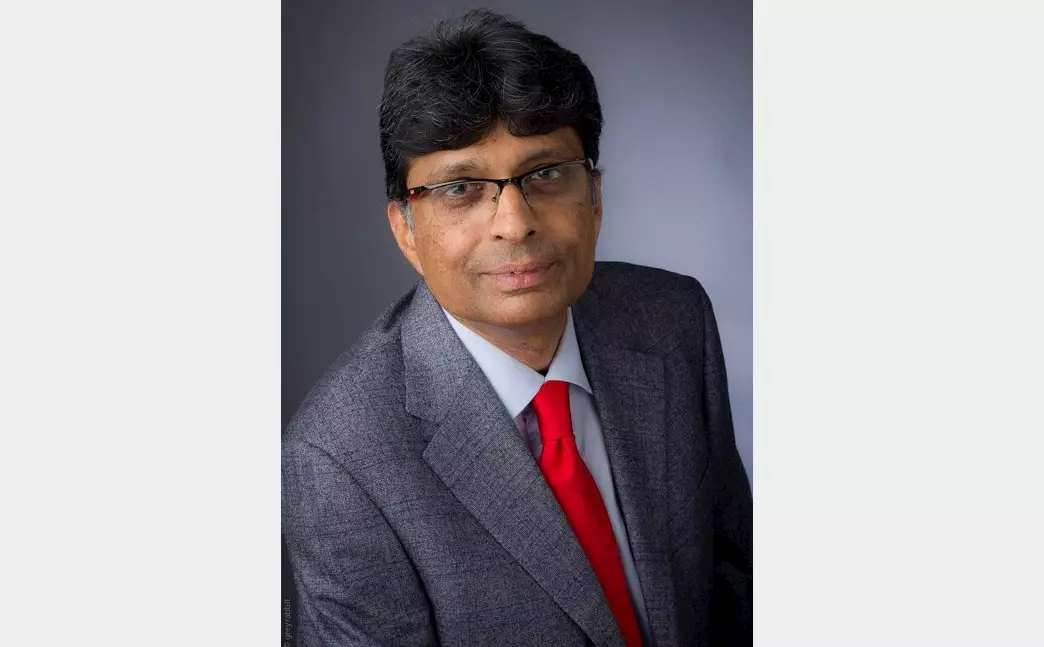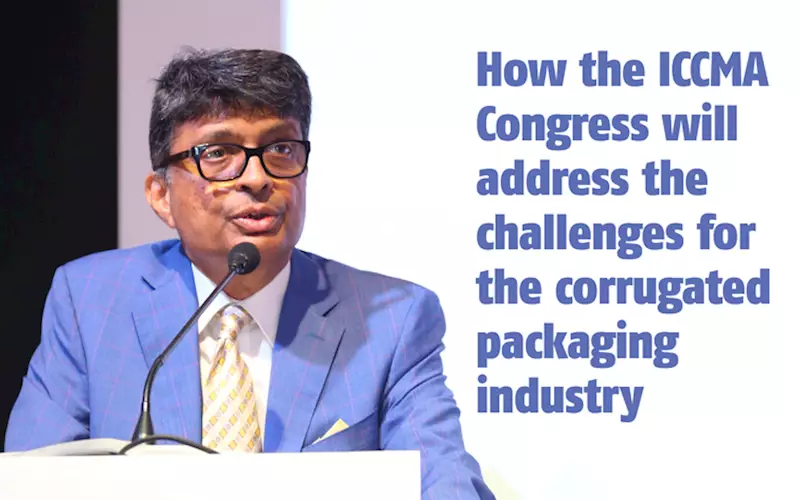How the ICCMA Congress will address the challenges for the corrugated packaging industry - The Noel D'Cunha Sunday Column
The strategic partner of the IndiaCorr Expo and India Folding Carton show, Indian Corrugated Case Manufacturers’ Association (ICCMA) is hosting a Congress on 8-9 October in Mumbai. On 8 October, ICCMA will organise an important roundtable. The theme is Vision Five Trillion Economy which will have 35 thought leaders discuss the highs and lows of the corrugated box industry.
Over a double-espresso at Starbucks, Kirit Modi says, "The main aim of the Congress is to create awareness amongst all the stakeholders about the industry’s burning issues. The delegates will benefit from this brainstorming about the corrugated packaging industry."
02 Oct 2022 | By WhatPackaging? Team
Kirit Modi, president emeritus of ICCMA, who spoke to PrintWeek says, "We have prepared a list of curated questions about the industry, Indian economy, global economy and the future of the brown box. The participants of this roundtable will share their views and deliberate. I feel it will bring a lot of clarity to the industry’s stakeholders, in lieu of the current context and how the future shall unfold."
Modi sips from his cup of beverage and rewinds into the past and points out, "It has been interesting to watch a highly fragmented industry transitions gradually from an unorganised to a semi-organised and now ushering into an organised sector over the last three decades." On cue, he adds, "a lot more has to be done."
Which is why the 8 October (Saturday) roundtable is important.
Modi says, "At the Congress, we will focus on the world and Indian economy. The deliberations will be about where we are going as a country and its impact on brown box production. Also we will look at disruptions and expected changes, crystal ball gazing and how our industry has responded."

An important step
There are huge takeaways from Modi during the conversation. He adorns his favourite-most finance hat and says, “The government needs to take policy measures in order to ensure that corrugation box units in the MSME sector as well as large players in the industry are able to borrow money at interest rate not exceeding 3% per annum. The government says the MSME is the backbone of the economy. A 3% interest rate will enable them to compete with the MNCs or large corporates who plan to enter this industry by making required investments in both Capex as well as how to fund the working capital needs. Otherwise the going will be very tough.”
The other topic is how industry players can guarantee, “A fair and reasonable price and simultaneously invest in growth.” Also, how partners can supply us standardised products and offer clear visibility and stability in the pricing. He agrees, the trust deficit has to be reduced but there have to be clear steps about how to achieve this.
Harish Madan, vice president of ICCMA says, “As converters we need to be reimbursed for raw materials price hikes for our survival. There is definitely a huge challenge for the industry in terms of pressure on costs, profitability and additional working capital funds. Our industry is requesting brand owners and corporate clients for their support. We are requesting them to understand our problems.”
Sanjay Rajgarhia, president of ICCMA, adds, “The roundtable is also discussing how a brown box manufacturer can focus completely in giving quality and service to the clients and engage in continuous productivity improvement activities.” He says, without productivity gains, survival will be challenging.

New horizons for Horizon Packs
The team at Horizon Packs (established in 1991) is busy boosting its desired growth in revenues plus diversifying its client base. Modi’s team has been travelling to the Horizon factory locations at a blistering pace. Be it: Rudrapur, Baddi and Roorkee in the north as well as Tindivanam, Harohalli, Pondicherry and Chennai in the south to Khamgaon and Nagpur in the west and Kolkata in the east.
Horizon Packs is 100% family owned but run professionally with senior leadership roles looked after by professionals. Modi says, “Some of the important functions looked after by the owners and directors” The vision is, doubling the turnover in the next five years for which “the necessary investments have been done.” This includes a fleet of BHS lines.
Modi says, “We have always set our sights on the long-term and we will continue to build on the considerable progress the group has made. We are very excited about the prospects for the group over the months and years to come.”
In the last year the company has made a raft of key investments at its plants and in its IT and data infrastructure in order to better serve its existing and potential customers.
Modi says, “Although it’s very expensive, it is worth keeping a long term view.” He adds, “In our new factories, we have all high-end machines.”
The Horizon mission is clear. Modi says, “We want to automate our operations and minimise manual steps, touchpoints, and communication. The main thing is, increase throughput and reduce waste to increase profitability and improve environmental sustainability.”
Will all of this be discussed during the ICCMA roundtable on 8 October? Kirit Modi says, yes. After all, productivity and efficiency will help the industry navigate the industry challenges of today and tomorrow.
One Dozen takeaways from Kirit Modi

1. Bringing in more revenue always trumps cutting expenses. Understand the supply side dynamics. if you look at Amul, Asian Paints, Pidilite, their USP has been supply side dynamics
2. Most of the brown box converters’ energy is focused on production. Try to find one focused on business at remunerative prices. Think from a customer's point-of-view
3. Keep six months cash on hand. This is the bare minimum. Covid has taught us that you never know when you will need it. Cash flow is what really matters
4. Bankers are there to lend; never think they are your friend. Remember: capital expenditures will drain your cash when you need it the most; always have a rational capital allocation policy
5. Revenue growth should outpace the economy and industry growth. Maintain pricing discipline. Maintain payment discipline. Minimise wastage.
6. Shrinking Gross Margins are a huge problem — address them immediately
7. Feed your best employees with bigger tasks. Create a company work culture around your best. Ensure there is a process
8. When training, tell them (verbally), show them (visually), and let them (tactically)
9. Build relationships with your customers before asking for money. You are a partner on a equal foothold; and not merely a strategic vendor
10. Always calculate the total cost to customers. Study your hidden costs. Be it hidden costs in wastages, hidden costs in consumables like glues, hidden costs in transport, hidden costs for your own brain power and time. That's the only way you can calculate the total price to customer
11. Too many business owners talk about their machines and investments. Too few, focus on soft power. For example, culture, team-building, delegating, housekeeping, plus how to get optimum conversion costs and be much-more efficient; in short, leverage your strengths
12. And finally, it is not the smartest BUT the dumbest person in the room, who decides the price in an auction or in the market











 See All
See All